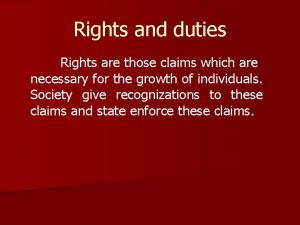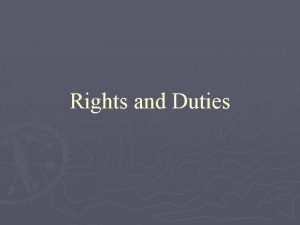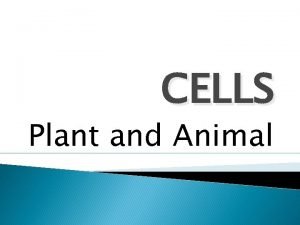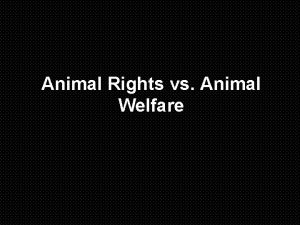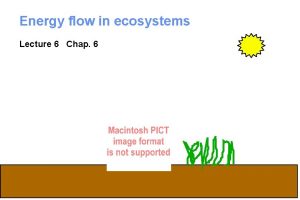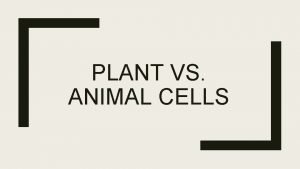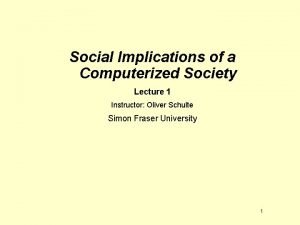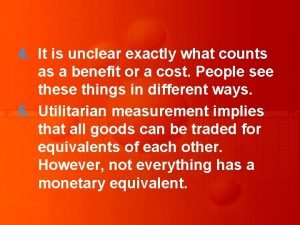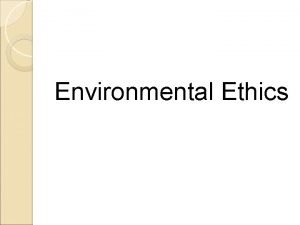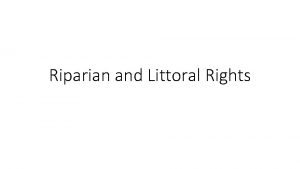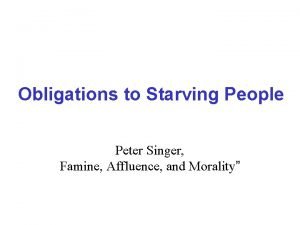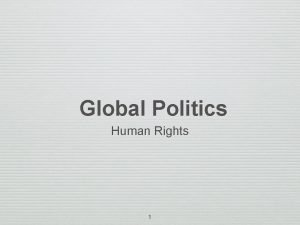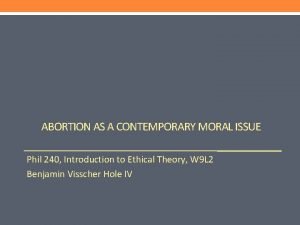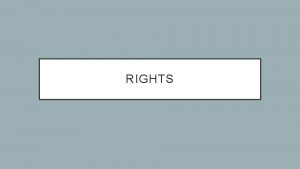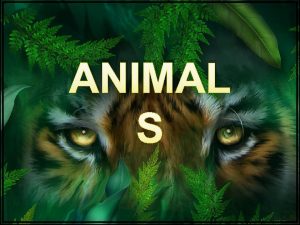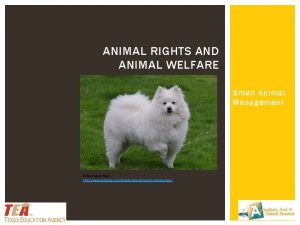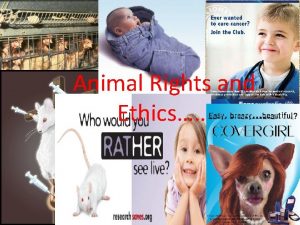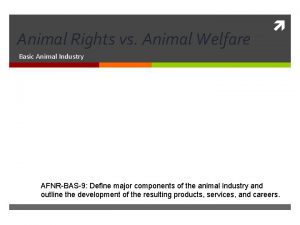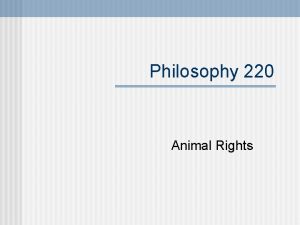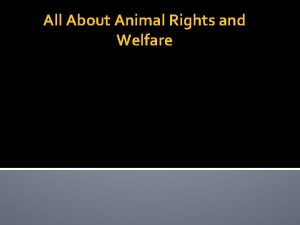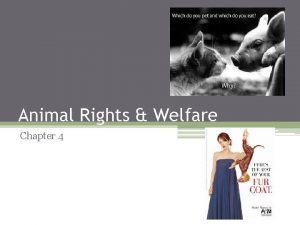Todays Topics Moral Standing and Animal Rights Moral












- Slides: 12

Today’s Topics Moral Standing and Animal Rights Moral Standing and Natural objects

Moral Standing • Which things in the universe count when making moral decisions? • Do (could) non-human animals or naturee have moral standing? • Why or why not?

Drawing Lines and Setting Criteria • Moral relevance • Fit with considered judgments • Reflective equilibrium as one test of a moral theory • Extension of theory to new cases

5 Theories of Animal Rights • No Status—Animals lack true moral standing because they lack a crucial property • Indirect Status—Animals sometimes have indirect, instrumental moral standing • Equal Standing—Animals are on exactly the same moral footing as humans • Equal Consideration—Animals matter in our moral deliberations, but not equally w/ humans • Two Tier Consideration—Human interests trump animal interests

Spheres of Relevant Values • Who matters • Anthropocentrism—only human beings and human interests matter • Biocentrism—any living thing matters and is morally significant • Ecocentrism—any natural thing matters and is morally significant

Kinds of Value • Intrinsic Value—Valuable independent of its usefulness or meaning to any other creature • Instrumental (Extrinsic) Value— Valuable because of its usefulness or meaning to some other creature

Theories of Moral Standing Kant Criterion Value Rationality Autonomy Rollin/ Singer Sentience Utility Regan Life Biological Existence

Standing for Natural Kinds (Species) and Natural Objects • Why do species and natural objects matter – Economic Value – Environmental Value – Informational Value • BUT, each of these is an INSTRUMENTAL and ANTHROPOCENTRIC reason for valuing • Russow seeks an aesthetic value for the individual members of a species

Values, Originals, and the Restoration Thesis • Is there anything wrong with simply restoring a natural area after extracting values from it (the restoration thesis)? • Eliot says Yes-there is a value in an original that cannot be recaptured no matter how faithful the reproduction.

Rights for Natural Objects (Standing for Trees) • The possession of rights does not turn on the possession of some property of capacity. • The possession of rights is a matter of human convention. • We have expanded the realm of right holders in the past, we could do it again.

What do Rights Do? • Are there conditions on the possession of rights, despite our agreements? • Rights are trumps, they protect something, but what? • If rights protect interests, then only those things which are capable of having interests could have rights.

Rights and Interests • The most one can have is a set of rights that protects the interests on can have. • E. g. without a concept of the self as a continuing subject, one cannot have a right to life (since that right protects one’s interest in oneself as a continuing subject) even though one may have other rights. • Rights would develop with capacities.
 Moral duties
Moral duties Legal rights vs moral rights
Legal rights vs moral rights Animal cell plant cell venn diagram
Animal cell plant cell venn diagram Animal rights vs animal welfare
Animal rights vs animal welfare Difference between standing crop and standing state
Difference between standing crop and standing state Venn diagram plant cell and animal cell
Venn diagram plant cell and animal cell Positive rights vs negative rights
Positive rights vs negative rights Positive rights and negative rights
Positive rights and negative rights Moral standing
Moral standing Difference between riparian and littoral rights
Difference between riparian and littoral rights Positive and negative rights
Positive and negative rights Negative rights
Negative rights Positive vs negative rights
Positive vs negative rights
